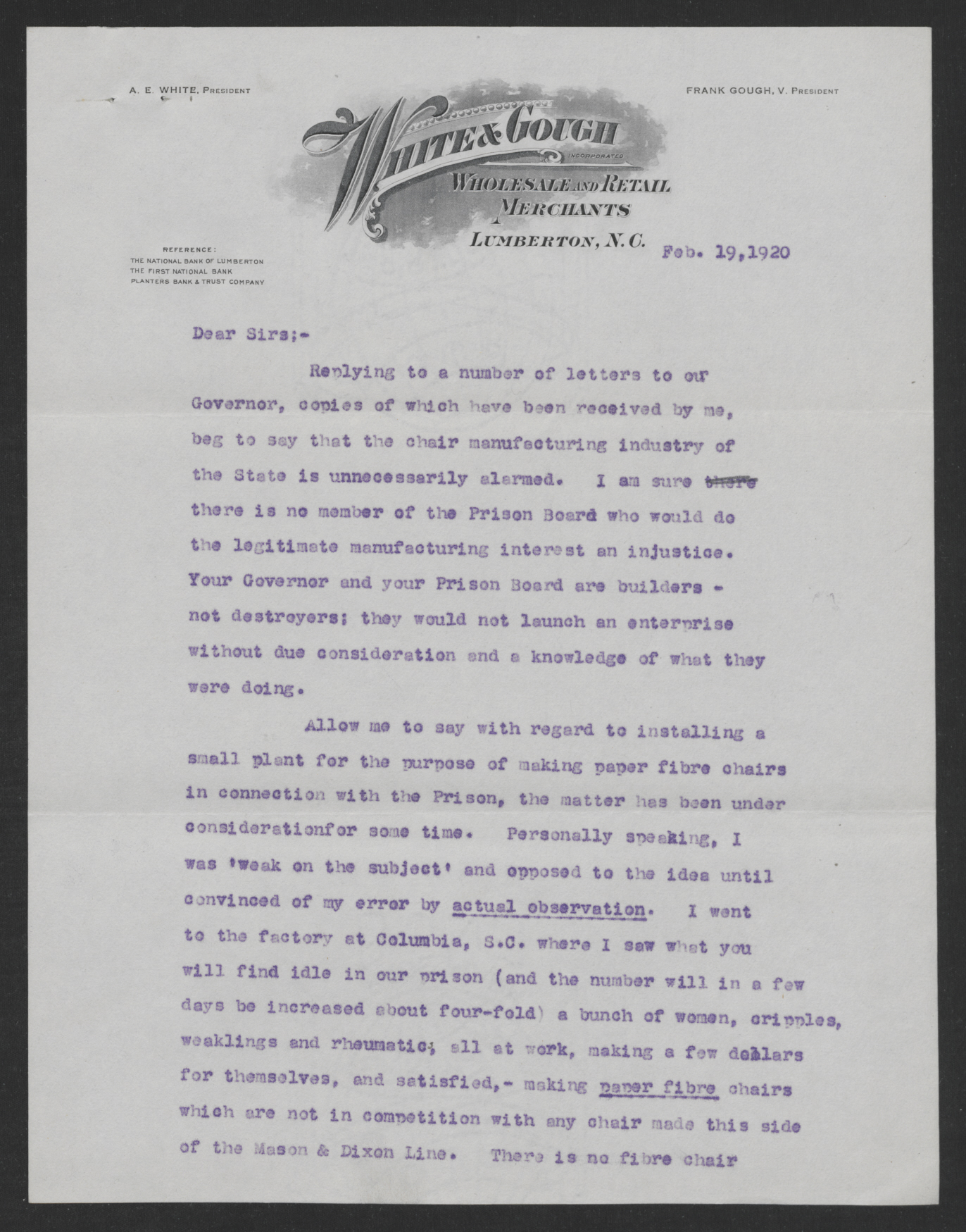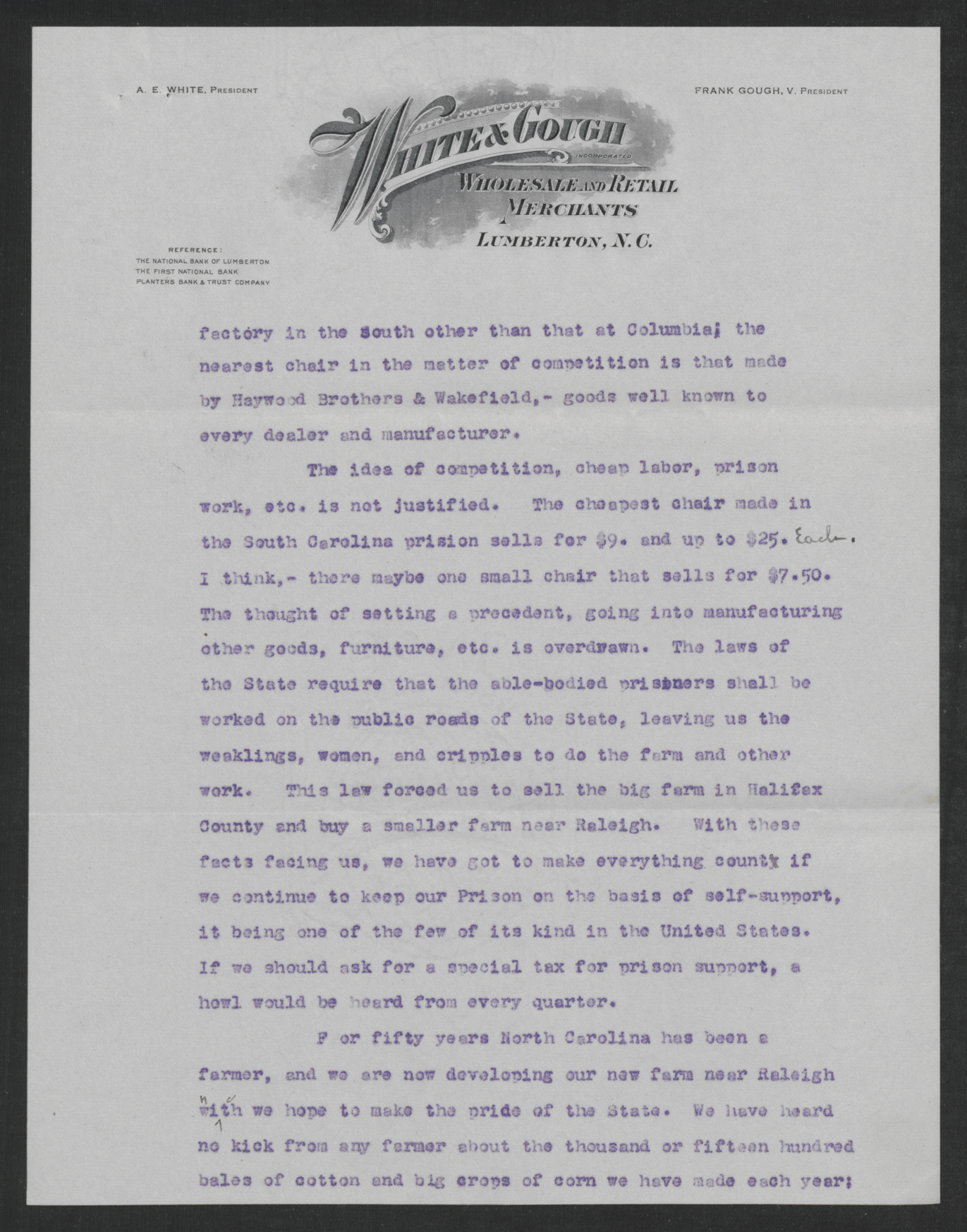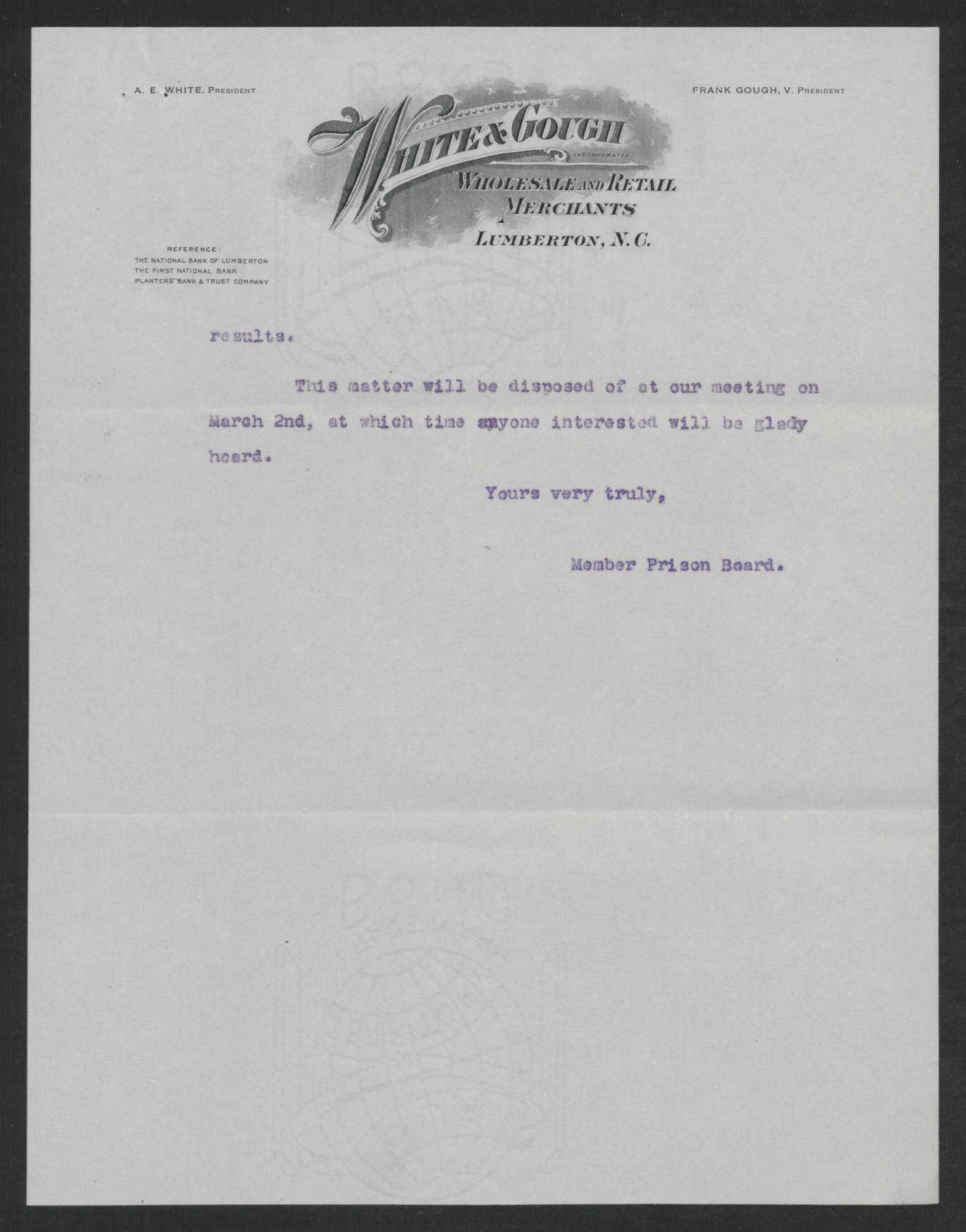WHITE & GOUGH
LUMBERTON, N.C.
Feb. 19, 1920
Dear Sirs;-
Replying to a number of letters to our Governor, copies of which have been received by me, beg to say that the chair manufacturing industry of the State is unnecessarily alarmed. I am sure there is no member of the Prison Board who would do the legitimate manufacturing interest an injustice. Your Governor and your Prison Board are builders - not destroyers; they would not launch an enterprise without due consideration and a knowledge of what they were doing.
Allow me to say with regard to installing a small plant for the purpose of making paper fibre chairs in connection with the Prison, the matter has been under consideration for some time. Personally speaking, I was 'weak on the subject' and opposed to the idea until convinced of my error by actual observation. I went to the factory at Columbia, S.C. where I saw what you will find idle in our prison (and the number will in a few days be increased about four-fold) a bunch of women, cripples, weaklings and rheumatic; all at work, making a few dollars for themselves, and satisfied, - making paper fibre chairs which are not in competition with any chair made this side of the Mason & Dixon Line. There is no fibre chair factory in the south other than that at Columbia; the nearest chair in the matter of competition is that made by Haywood Brothers & Wakefield, - goods well known to every dealer and manufacturer.
The idea of competition, cheap labor, prison work, etc. is not justified. The cheapest chair made in the South Carolina prision sells for $9. and up to $25. each. I think, - there maybe one small chair that sells for $7.50. The thought of setting a precedent, going into manufacturing other goods, furniture, etc. is overdrawn. The laws of the State require that the able-bodied prisoners shall be worked on the public roads of the State, leaving us the weaklings, women, and cripples to do the farm and other work. This law forced us to sell the big farm in Halifax County and buy a smaller farm near Raleigh. With these facts facing us, we have got to make everything count if we continue to keep our Prison on the basis of self-support, it being one of the few of its kind in the United States. If we should ask for a special tax for prison support, a howl would be heard from every quarter.
For fifty years North Carolina has been a farmer, and we are now developing our new farm near Raleigh whicth we hope to make the pride of the State. We have heard no kick from any farmer about the thousand of fifteen hundred bales of cotton and big crops of corn we have made each year; the market has not been affected, the cry of 'over-stock' has not been heard, but if farmers were now taxed for prison support the reason would be quickly ascertained.
I have no selfish interest in the matter - my only thought is for the best interest of you and all the other people of the State. I am your servant, and so long as I occupy the present responsibility I shall do my duty as I see it, and in this instance I know I desire to help and not to hurt, and my personal investigation has convinced me that I shall be doing no one an injustice when I help save instead of expend. If you had full knowledge of conditions, I feel sure that not a one would register an objection.
I do not know that this little enterprise will materialize, but should it do so and we were to make the same kind of chairs (which we will not) that every factory in the State makes, we could not (with the help allowed by law) put out enough chairs to be called a competitor of one factory, much less be a competitor of the State's output, and I believe some have said that this is the greatest chair manufacturing state in the Union.
Some have placed a political coloring around their honest, but unwise, letters of objection. Replying to this, I wish to say with me duty shall be my first consideration, and when I shall have done this I fear not the results.
This matter will be disposed of at our meeting on March 2nd, at which time anyone interested will be gladly heard.
Yours very truly,
[unsigned]
Member Prison Board.
Date:
Sender:
Repository:
Collection:
Places:
»» »» South Carolina








